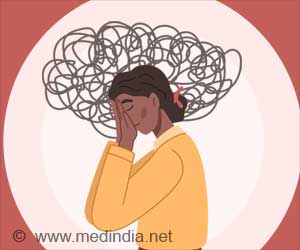A collaborative study in the US has uncovered perhaps the strongest evidence yet linking variation in a particular gene with anxiety-related traits.
A collaborative study in the US has uncovered perhaps the strongest evidence yet linking variation in a particular gene with anxiety-related traits.
Researchers from Massachusetts General Hospital (MGH), the University of California at San Diego, and Yale University says that particular versions of a gene that affects the activity of important neurotransmitter receptors were more common in both children and adults assessed as being inhibited or introverted, and also were associated with increased activity of brain regions involved in emotional processing.“We found that variations in this gene were associated with shy, inhibited behaviour in children, introverted personality in adults and the reactivity of brain regions involved in processing fear and anxiety. Each of these traits appears to be a risk factor for social anxiety disorder, the most common type of anxiety disorder in the US,” says Dr. Jordan Smoller of the MGH Department of Psychiatry, the report’s lead author.
It has long been recognized that the tendency to anxiety disorders can run in families and is believed to be influenced by the interaction of several genes. Given the varied forms of such disorders and their complex patterns of inheritance, identifying specific susceptibility genes has been difficult.
Several mice studies have linked an area of chromosome 1 to anxious temperament, particularly the gene that codes for a protein called RGS2, which mediates the activity of neurotransmitter receptors that are also the targets of many antidepressant and antipsychotic drugs. Mice in whom RGS2 is knocked out exhibit increased fearful behaviour.
As part of the present research into the role of RGS2 in humans, the researchers conducted several experiments. They analysed blood samples from children from 119 families who had participated in an earlier study assessing their reactions to unfamiliar situations at the ages of 21 months, four and six years.
The research team evaluated the participants on their levels of behavioural inhibition, a form of temperament linked to increased risk of anxiety disorders. While testing several sites in the RGS2 gene, they identified nine variations that appeared to be associated with inhibition.
Advertisement
The team observed that the versions associated with inhibited behaviour in the children were also more common in the college students who scored high on measures of introversion, a personality trait that also involves social inhibition.
The researchers revealed that participants with the inhibition-associated alleles also had increased activity of the amygdala and the insula, another anxiety-related brain region.
“Now we need to investigate whether these RGS2 variants actually are associated with particular disorders and how they act on a cellular level. We hope that ultimately this work will lead to new drug targets and treatment options for anxiety disorders,” says Smoller.
A report on the study has been published in the Archives of General Psychiatry.
Source-ANI
SRM/L










